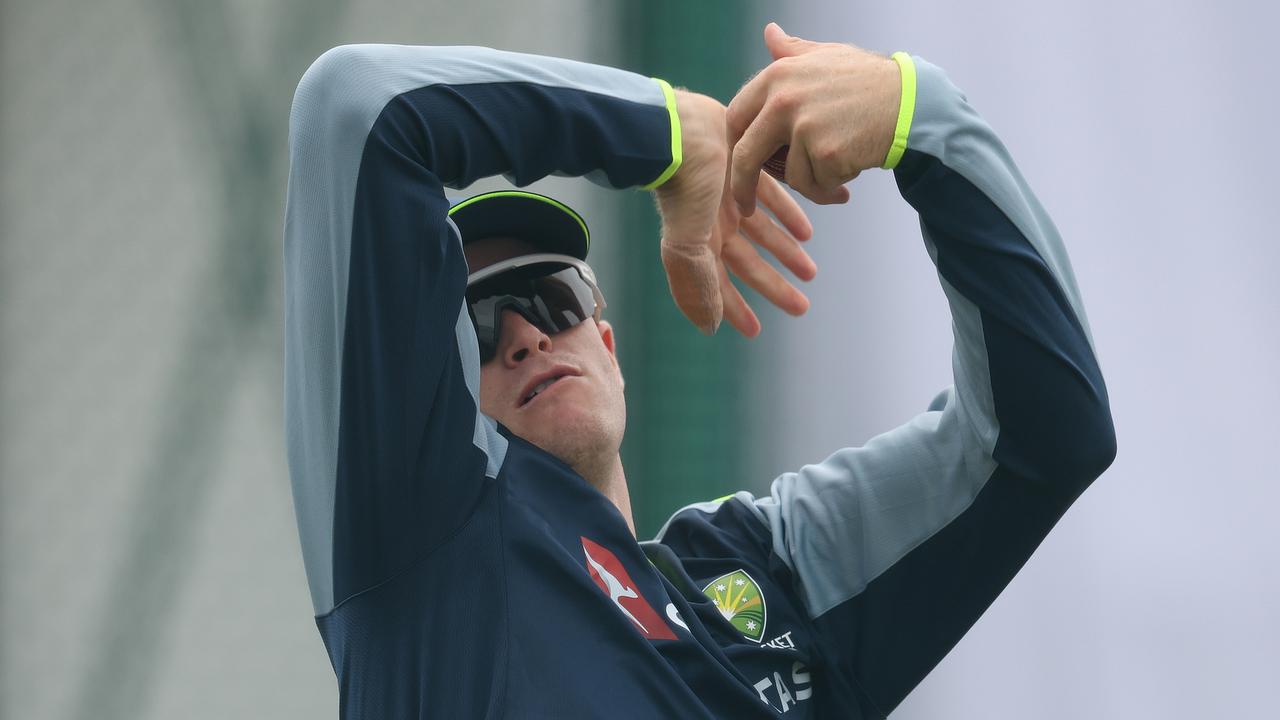Cricket: Corporate culture as bad as players’ behaviour
Cricket Australia’s review into the ball-tampering scandal will highlight a corporate culture as bad as the players’ behaviour

Cricket Australia’s cultural review into the ball-tampering scandal in South Africa, due to be released today, will highlight a corporate culture that was as bad off the field as was the players’ behaviour on it.
There was no sandpaper found, but plenty of abrasive characters.
The heavily redacted document doesn’t pull its punches in identifying a bullying culture that started in the halls of power and trickled down to — or was reflected by — the dressing room.
It is understood there may even be recommendations that the bosses undertake training to eradicate bullying.
What is pulled, however, is any accountability at headquarters. While bans were handed out to Steve Smith, David Warner and Cameron Bancroft — and coach Darren Lehmann accepted responsibility by resigning — the administration has removed all references to individuals in the report, which has been six months in the preparation.
Cricket Australia’s lawyers have been through the review — written by Simon Longstaff and the staff of the Ethics Centre after interviews with a broad range of those involved — and removed a number of passages that identify individuals.
Eyebrows were raised by the fact that Longstaff did not interview several key witnesses to the ball tampering, including senior members of the staff who were in South Africa and the media manager, but Warner and Smith were both called in.
Cricket Australia yesterday defended the move to redact the document, pointing to privacy provisions in the initial terms of reference that said it would be made public with some restrictions.
“All material and information gathered by the reviewer and capable of identifying any person or their point of view, through the course of the review, will remain strictly confidential unless otherwise agreed with the person providing the material or information,” the terms of reference stated.
The organisation said at the time the review would “investigate whether any wider cultural, organisational and/or governance issues within CA, and more broadly within Australian cricket, should be addressed to ensure these events never occur again ... this review will investigate links between player behaviour (particularly on this tour of South Africa) and the organisational, governance and culture within CA and Australian cricket”.
CA chairman David Peever said at the time of the scandal that it “happened on my watch” and added “we (the board) clearly accept responsibility”.
Immediately after, he sought a three-year extension of his term as chairman, causing one director, Bob Every, to quit in protest.
Chief executive James Sutherland finished up last week after 17 years in that role and was replaced by another senior executive — and former director — Kevin Roberts. Sutherland announced his intention to step aside after the incident in South Africa, but said he had been in discussions with the board about his departure for some time.
A lot of focus has been on the win-at-all-costs mentality in the organisation, which many sheet home to the high-performance department and its head Pat Howard.
Howard has denied the cultural problems are his or that he put too much emphasis on winning. Any move to make him the scapegoat was probably headed off by his admission that he would not be asking for another term when his contract ends in 12 months.
The situation is galling for the players who paid an immediate price after a brief investigation held them to account. They were able to appeal the findings but were scared off by public perception and the process involved.
There was widespread disbelief last week when the state associations, whose vote approves directors’ terms, were not given access to the review until after the vote on Peever’s future was taken. Even then participants were given a short time to scan the document, which had already had names and other elements redacted.
Media will be given early access to the review today but have to agree not to disclose any of its contents until it is officially released.
Former Australia skipper Mark Taylor, a CA director, admitted yesterday the review was critical of the administrators.
“There’s been some heat and there’ll be more,” Taylor said on the Nine Network. “We’ve got some reviews coming out very shortly. I’m not allowed to say when. They will come out and there will be more heat no doubt.”
The Australian Cricketers Association, which was on the other side of the battle with Peever’s administration during the pay dispute, has made a submission to the Longstaff review but refuses to divulge its contents.
Shane Watson, who is a member of the ACA executive, wrote last week that an element of its submission involved deconstructing the high-performance pathways and learning to value traditional state cricket programs.


